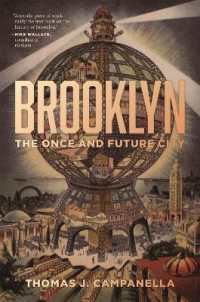- ホーム
- > 洋書
- > ドイツ書
- > Humanities, Arts & Music
- > History
- > regional history
Full Description
This book examines why, on the eve of the pamphlet's 175th anniversary, the Communist Manifesto left so faint an imprint on Europe's most revolutionary year of 1848, when it has had such a huge impact on posterity.








